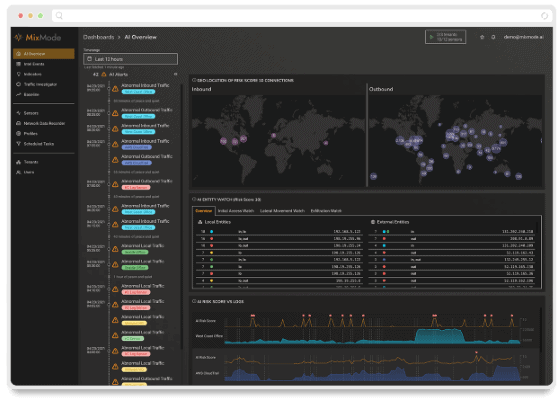Cybersecurity Budgets Swell as Threats Increase
Analysts are predicting that cybercrime could cost the world between $3 to $6 trillion US Dollars annually by 2021. Unfortunately, given the current climate of the cybersecurity industry, a company could spend their entire budget and then some on cybersecurity and still be at risk of a major breach.
Instead of trying to out-spend hackers, businesses should focus on investing in the best new methods of spotting and stopping attacks as quickly as possible.
A few key trends have driven the increase of threats and preventative spending like hostile nations exchanging information on orchestrating attacks, the emergence of AI as a threat, and the steady yearly increases in IT security spending such that the global cybersecurity market is set to grow from its current market value of more than $120 billion to over $300 billion by 2024.
There has been a growth of AI-enabled cyber attacks that are able to modify the code, poison datasets, and manipulate voice or video content. Possibly most concerning is the ability to launch an AI attack quietly within normal business hours after it has been sitting quietly in the system for long periods of time learning how it operates.
The latter issue is referred to as a Zero-Day attack, where a breach is not recognized in time to thwart an attack despite being in the system for a while.
Emerging cybersecurity company MixMode has proprietary AI software built to handle precisely these kinds of attacks. Context-aware AI has a five-minute window response time between the breach and the alert.
The key to a secure network isn’t always the most expensive solution in the room, but the one that makes the most sense for your network. Read More
NIST issues plan for AI standards that includes testing related to cybersecurity
The National Institute for Standards and Technology has to walk the fine line when considering the future of Artificial Intelligence. Federal Standards for AI have to be tough enough that the technology cannot harm humans but lenient enough to allow for innovation.
On Monday the NIST published its anticipated guide on how the government should approach creating ethical and technical standards for AI.
Even though the plan does not yet include any specific regulations or policies, it does outline multiple initiatives that promote the responsible use of AI.
The plan was born out of a February executive order that called on agencies to ramp up their investments in AI as global competitors like China do the same.
The AI standards developed in the years ahead should be flexible enough to adapt to new technologies while also minimizing bias and protecting individual privacy, the agency said. While some standards will apply across the broader AI marketplace, NIST advised the government to also examine whether specific applications require more targeted standards and regulations.
“The degree of potential risk presented by particular AI technologies and systems will help to drive decision making about the need for specific AI standards and standards-related tools,” officials said.
In the plan, NIST officials said the government needs to invest in research that focuses on understanding the trustworthiness of AI and incorporating that research into future standards.
“Public trust, security, and privacy considerations remain critical components of our approach to setting AI technical standards,” U.S. Chief Technology Officer Michael Kratsios said in a statement. “As put forward by NIST, federal guidance for AI standards development will support reliable, robust and trustworthy systems and ensure AI is created and applied for the benefit of the American people.” Read More
Artificial Intelligence Stocks Lurk Beyond Tech Giants, Says Bank Of America
According to a Bank of America report, investors looking to put some money into Artificial Intelligence stocks should consider going beyond the tech giants like Alphabet’s (GOOGL) Google or Amazon.com (AMZN) and turn to software companies like HubSpot or Zen Desk.
Artificial Intelligence is growing rapidly as a sector of the stock market and it is important for investors to consider some lesser-known companies using Machine Learning and AI tools when it comes to buying stocks.
“While the big four cloud computing platform companies (Amazon, Alphabet, Microsoft (MSFT), IBM (IBM)) have been leaders in building out AI services, investors should broaden their search for AI companies,” the report says.
According to Bank of America, the AI market could quadruple in size to $127 billion by 2025 from $36 billion in 2020 as usage expands in retail, cybersecurity, and other areas. Read More
MixMode Articles You Might Like:
What is Network Detection and Response (NDR)? A Beginner’s Guide
The Tech Stack Needed to Start an MSSP Practice: Firewall, SIEM, EDR and NDR
AI-Enabled Cybersecurity Is Necessary for Defense: Capgemini Report
Web App Security: Necessary, Vulnerable, and In Need of AI for Security
The Endpoint Gap in Cybersecurity
3 Reasons Why Managed Service Providers Should Consider Focusing on Cybersecurity

